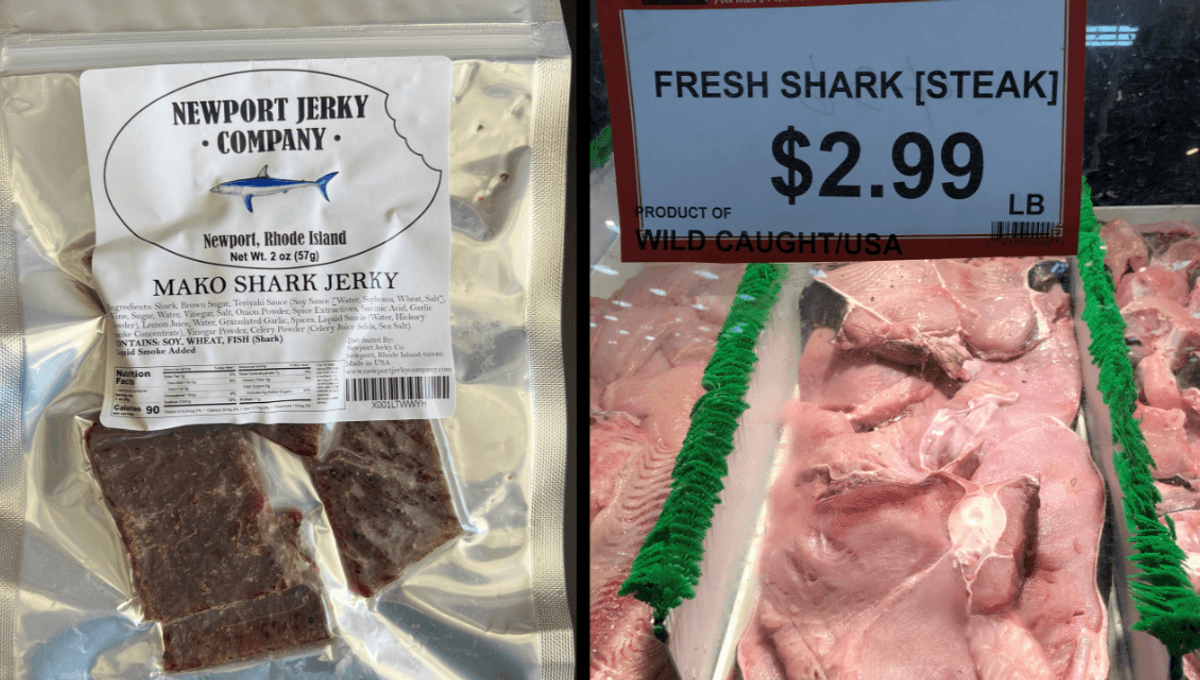
An investigation into shark meat being sold at grocery stores, seafood markets, and online in the US has found that a concerning amount comes from vulnerable through to critically endangered species, and is commonly presented to shoppers with ambiguous or incorrect labeling.
Carried out as part of a seafood forensics course at the University of North Carolina at Chapel Hill, the researchers bought 30 shark products from in-person and online stores in Washington DC, North Carolina, Florida, and Georgia, and then analyzed the DNA of the samples to find out which species they belonged to.
Of the 29 shark meat samples for which the species could be identified, 31 percent were found to belong to four species listed as either endangered or critically endangered on the IUCN Red List of Threatened Species, including the great hammerhead, scalloped hammerhead, tope, and shortfin mako shark. In fact, all but one of the 11 shark species identified in the samples was listed as near-threatened or above – and yet, for some, to purchase just under half a kilo (or a pound) of their meat cost less than a share size bag of Sour Patch Kids.
“Sharks such as great and scalloped hammerheads are the ocean’s equivalent of lions, and we were shocked by how cheaply the meat of these rare, long-lived apex predators was sold,” said the study’s first author Dr Savannah Ryburn in a statement. “Some samples were only $2.99 per pound.”
As a shopper without access to DNA testing, it’d be hard to figure out exactly what you were buying, too; 93 percent of the samples were labeled as either “shark” or “mako shark”, and of the two that did include a species name, one of them wasn’t even right. Not exactly great if you’re not keen on eating endangered species. “Mislabeling and ambiguous labeling remove consumers’ ability to choose what they are putting in their bodies,” said Ryburn.
But this isn’t just a problem because of personal ethics – it’s also about safety. Some of the species found to be sold aren’t recommended for consumption. “Two species in our study, scalloped hammerhead and great hammerhead, were ambiguously labeled as ‘shark,’ even though they are strongly advised against consumption due to their very high mercury levels,” explained Ryan. “Without accurate and precise labeling, consumers cannot avoid purchasing these products.”
This isn’t a situation unique to the US in recent times either. Last month, an investigation by Mongabay revealed that endangered angelsharks were being served up in school lunches in the Brazilian state of Rio Grande do Sul, despite laws that ban the capture and trade of endangered species. A problem both here and in the US is that there can be legal loopholes depending on where the shark meat comes from.
“The legality of selling shark meat in the United States depends largely on where the shark was harvested and the species involved, due to regulations under CITES and the Endangered Species Act,” said Ryburn in a second statement. “However, by the time large shark species reach grocery stores and markets, they are often sold as fillets with all distinguishing features removed, making it unlikely that sellers know what species they are offering.”
So, what’s the solution? “Sellers in the United States should be required to provide species-specific names,” suggested Ryan, “and when shark meat is not a food security necessity, consumers should avoid purchasing products that lack species-level labeling or traceable sourcing.”
The study is published in Frontiers in Marine Science.
Source Link: Critically Endangered Shark Meat Is Being Sold In US Stores For As Little As $2.99